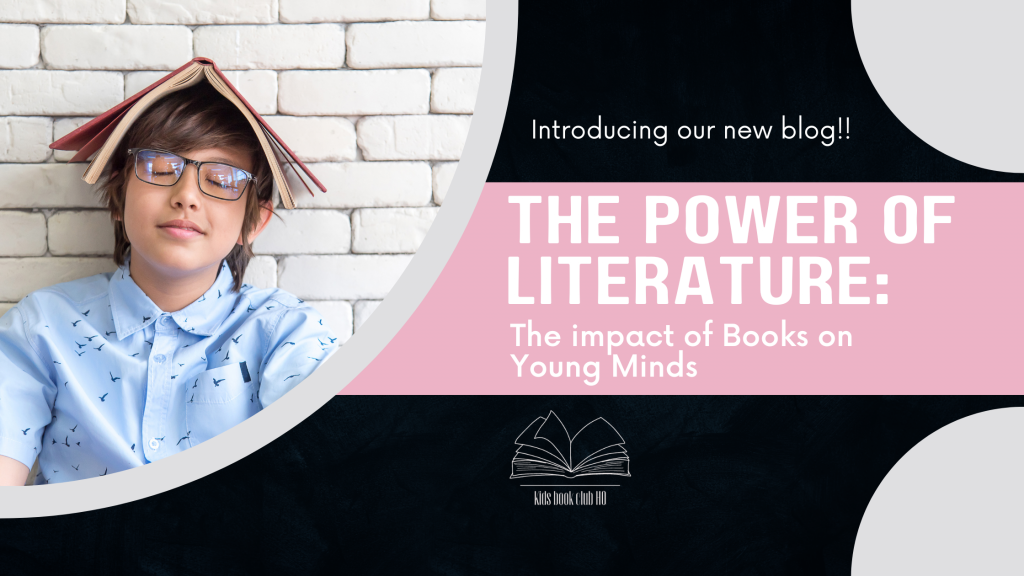Children’s literature holds immense power in shaping the minds and development of young readers. The enchanting world of books goes beyond mere entertainment; it ignites imagination, enhances cognitive skills, and instills valuable life lessons. In this article, we will delve into the profound impact of children’s literature on the growth and well-being of our little ones, highlighting the significant value it holds in their lives.
1. Igniting Imagination and Creativity
Children’s literature serves as a catalyst for imagination and creativity. When young minds delve into the pages of well-crafted stories, they are transported to magical realms, mythical lands, and thrilling adventures. These literary journeys allow them to envision vivid characters, vibrant settings, and captivating plots, nurturing their imaginative faculties. Whether through tales of fantasy or stories grounded in reality, children are encouraged to think beyond the ordinary and explore new ideas, thereby stimulating their creativity and problem-solving skills.
2. Developing Language and Literacy Skills
Reading books is a fundamental way for children to develop language and literacy skills. As they encounter new words, sentence structures, and storytelling techniques, their vocabulary expands, and their linguistic abilities strengthen. Engaging with diverse genres and styles enhances their understanding of language nuances, grammar rules, and the art of effective communication. Moreover, exposure to a wide range of literary works helps them develop a love for reading and lays a solid foundation for lifelong learning.
3. Fostering Emotional Intelligence
Children’s literature plays a significant role in nurturing emotional intelligence in young readers. Stories often present characters grappling with various emotions, such as joy, sadness, fear, and love. By witnessing these emotional journeys, children gain a deeper understanding of their own feelings and develop empathy for others. Through relatable narratives, they learn to recognize and manage their emotions, building emotional resilience and social skills that are vital for their personal growth and relationships.
4. Encouraging Moral and Ethical Values
Books have the power to teach valuable lessons and instill moral and ethical values in children. Through relatable characters and thought-provoking narratives, stories impart important messages about kindness, honesty, integrity, and compassion. They offer young readers opportunities to explore ethical dilemmas, make moral judgments, and understand the consequences of their actions. By internalizing these lessons, children develop a strong moral compass, guiding their behavior and decision-making as they navigate the complexities of the world.
5. Promoting Cognitive Development
Children’s literature is a treasure trove for cognitive development. As young readers engage with stories, they encounter new concepts, ideas, and perspectives. They learn to analyze and interpret information, make connections between different elements of the narrative, and engage in critical thinking. Moreover, exposure to a wide range of genres broadens their horizons, introduces them to various cultures and perspectives, and expands their knowledge base. This cognitive stimulation lays the groundwork for academic success and nurtures a curious and inquisitive mind.
6. Building Empathy and Cultural Understanding
Diverse children’s literature plays a crucial role in promoting empathy and cultural understanding among young readers. Through stories that depict characters from different backgrounds, cultures, and experiences, children learn to appreciate diversity and embrace inclusivity. They gain insight into the lives of others, fostering a sense of empathy, respect, and acceptance. By cultivating a global perspective from an early age, children are better equipped to navigate an increasingly interconnected world with compassion and open-mindedness.
7. Creating Lifelong Readers
Perhaps one of the most significant benefits of children’s literature is its ability to create lifelong readers. When children are introduced to the joys of reading at a young age, it becomes a pleasurable habit that extends into adulthood. The experience of getting lost in a good book stays with them, and they carry that love for literature throughout their lives. As they grow older, reading becomes not only a source of knowledge but also a source of comfort, inspiration, and personal growth.
the power of literature
Children’s literature introduces young readers to a vast array of genres, including fairy tales, adventure stories, mysteries, science fiction, historical fiction, and more. Each genre offers its own unique benefits, catering to different interests and preferences. Fairy tales, for example, ignite a sense of wonder and imagination, while historical fiction transports readers to different time periods, fostering a deeper understanding of history. By exploring various genres, children have the opportunity to discover their own literary passions and broaden their horizons.
Parents and educators play a vital role in nurturing a love for reading in children. By creating a supportive and engaging reading environment, they can cultivate a lifelong appreciation for literature. Reading aloud to children from an early age not only exposes them to language and storytelling but also establishes a strong bond between the reader and the child. As children progress in their reading skills, encouraging them to choose books based on their interests and providing opportunities for independent reading further fuels their enthusiasm.
In today’s digital age, where screens dominate much of our daily lives, it is important to strike a balance between technology and the written word. While e-books and audiobooks offer convenience and accessibility, there is a unique sensory experience that comes with holding a physical book, flipping through its pages, and smelling the ink and paper. Encouraging children to engage with physical books can help foster a deeper connection with the written word and enhance their reading experience.
Children’s literature has the power to shape not only individual lives but also society as a whole. Books that address important social issues, promote inclusivity, and celebrate diversity contribute to a more compassionate and understanding world. By exposing children to stories that depict characters from different backgrounds, cultures, and abilities, we instill values of empathy, respect, and acceptance. Through literature, children can learn to appreciate and celebrate the rich tapestry of human experiences.
conclusion
In conclusion, the power of children’s literature cannot be overstated. It has the ability to ignite imagination, develop language skills, foster emotional intelligence, instill moral values, promote cognitive development, and build empathy and cultural understanding. By nurturing a love for reading and exposing children to a diverse range of stories, we can empower them to become lifelong readers with open minds and compassionate hearts.
If you’re looking for recommendations on must-read books for children, be sure to check out our blog on our website. We have carefully curated a list of captivating and educational books that will engage young minds and leave a lasting impact. Additionally, don’t forget to follow us on Pinterest, where we share exciting book recommendations, reading tips, and interactive activities to make the reading experience even more enjoyable.
Join our community of book enthusiasts and parents who understand the importance of children’s literature in shaping young minds. Together, we can create a world where every child has access to the transformative power of books and the joy of reading.
Remember, the journey of a thousand pages begins with a single word. Let’s embark on this adventure together and unlock the limitless possibilities that children’s literature holds.

